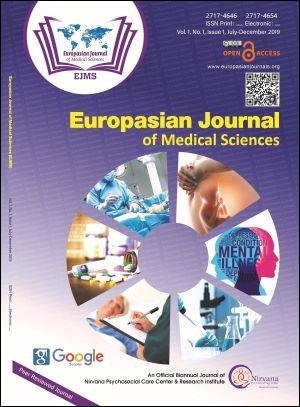Drug Dosage Adjustment of Chronic Kidney disease Patients at Nephrology Ward in Tertiary Care Hospital of Nepal
Keywords:
appropriateness, chronic kidney disease, dose adjustment, drug dosage adjustment, Nepal, nephrologyAbstract
Background: Drug dosage adjustment is essential for chronic kidney disease patients (CKD) patients. If it is not done properly, this will lead to an increase in toxicity and a decrease in the effectiveness of therapy. The objective of the present study was to assess whether appropriate dosage adjustments were made in hospitalized CKD patients.
Methods: A descriptive cross-sectional study was carried out among 80 CKD patients with stage II to V admitted in the nephrology ward of Chitwan Medical College Teaching Hospital, Nepal between 1st August to 30th November 2018. All patients with renal clearance ≤90 ml/min/1.73 m2 were included for the analysis. Data concerning patient’s clinical, medications and dosages, laboratory findings were extracted from the medical record section.
Results: Total of 81 numbers of prescribed drugs was found in eighty hospitalized CKD patients. Twenty-seven were found requiring dose adjustment. Dose adjustment according to renal function was judged as necessary in 27 dose adjustment required drugs. Among these, 11 (40.7% of 27) drugs were considered appropriate in dosing, whereas 16 (59.3%) were found to be inappropriate. A total of 13 (81.3%) number of drugs were inappropriately adjusted in stage V patients.
Conclusion: Dosing errors were the most frequently observed challenge in the patient hospitalized with CKD. This study also intensified the need for strong monitoring of drug therapy which will bear in achieving the better therapeutic outcomes that improve the quality of life and decrease the various problems associated with dosing error.
Downloads
Downloads
Published
How to Cite
Issue
Section
License
The author(s) retain the ownership of the copyrights for their work published in EJMS without any restrictions. Upon submission, the author(s) grants EJMS a license to publish, including to display, store, copy, and reuse the published content.
License to Publish
By submitting a manuscript to EJMS, the author(s) grant the journal a non-exclusive license to:
- Publish and distribute the content in all formats, media, and platforms (both existing and future), while identifying EJMS as the original publisher.
- Reproduce, display, and store the content in both print and online formats, including institutional and digital repositories.
- Translate, adapt, and summarize the work, including reprints, extracts, and abstracts.
- Develop derivative works based on the original content.
- Include the work in electronic databases and provide links to third-party materials.
Creative Commons Licensing
In addition to EJMS’s publishing rights, authors grant third parties the right to use, share, and distribute their work under the Creative Commons Attribution 4.0 (CC BY 4.0) International License. This allows unrestricted use of the content, provided proper attribution is given to the original author(s) and the journal.

